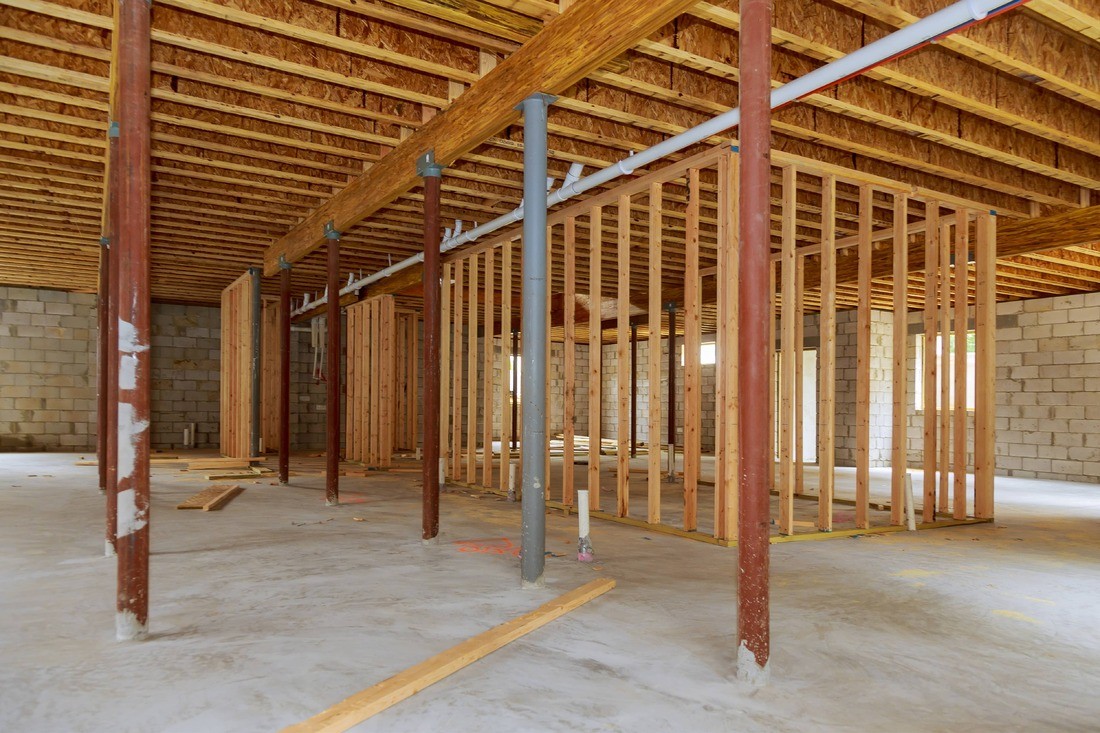
Introduction to Restoration for Flooded Basements
Basement flooding is a common issue that many homeowners face. Whether it’s due to heavy rains, plumbing leaks, or natural disasters, dealing with a flooded basement can be overwhelming. Restoration for flooded basements is essential to prevent further damage and ensure the safety and structural integrity of your home.
What is Restoration for Flooded Basements?

Restoration for flooded basements refers to the process of mitigating water damage, removing excess water, and restoring the affected area to its pre-flood condition. It involves various steps, including water extraction, drying, cleaning, and repairing any structural damage.
The Restoration Process for Flooded Basements
The restoration process for flooded basements typically involves the following steps:
1. Assessment and Inspection
Before beginning the restoration process, professionals will assess the extent of the damage and identify the source of the flooding. This step helps create a roadmap for the restoration project.

2. Water Extraction
The next step is to remove the standing water from the basement. Professionals use specialized equipment, such as pumps and vacuums, to extract the water efficiently. This step helps prevent further damage and mold growth.
3. Drying and Dehumidification
Once the water is removed, the drying process begins. Industrial-grade dehumidifiers and fans are used to dry out the affected area and prevent moisture buildup. This step is crucial in preventing mold growth and structural damage.
4. Cleaning and Sanitization
After the drying process, the affected area is thoroughly cleaned and sanitized to remove any contaminants and prevent bacterial growth. This step ensures a safe and healthy environment.
5. Repairs and Restoration
If there’s any structural damage caused by the flooding, repairs are conducted to restore the basement to its original condition. This may include repairing walls, floors, electrical systems, and plumbing.
6. Prevention Measures
Once the restoration is complete, professionals may suggest implementing preventive measures to minimize the risk of future basement flooding. This may include installing sump pumps, improving drainage systems, and waterproofing the basement.
The Cost of Restoration for Flooded Basements
The cost of restoration for flooded basements can vary depending on several factors, such as the extent of the damage, the size of the basement, and the necessary repairs. On average, homeowners can expect to pay around $4,300 for basement flood restoration.
Preventing Basement Flooding
While it’s impossible to completely eliminate the risk of basement flooding, there are preventive measures you can take to minimize the chances:
1. Maintain Gutters and Downspouts
Keep your gutters and downspouts clear of debris to ensure proper water drainage away from your home’s foundation.
2. Install a Sump Pump
A sump pump can help remove water from the basement in case of flooding. Consider installing one if your area is prone to heavy rains or water buildup.
3. Waterproof Your Basement
Applying a waterproof sealant to your basement walls and floors can help prevent water intrusion.
4. Address Plumbing Issues
Regularly inspect and repair any plumbing issues, such as leaks or pipe bursts, to prevent water damage.
5. Grade Your Yard
Ensure that your yard slopes away from your home’s foundation to redirect water flow.
Benefits of Professional Restoration Services
While some homeowners may attempt to tackle basement flood restoration on their own, hiring professional restoration services offers several benefits:
1. Expertise and Experience
Professional restoration technicians have the knowledge, skills, and experience to handle all aspects of basement flood restoration. They can identify hidden damage, mitigate risks, and ensure thorough restoration.
2. Fast and Efficient Restoration
Professional restoration services have access to advanced equipment, such as high-powered drying fans and moisture meters, which enable them to complete the restoration process quickly and efficiently.
3. Mold Prevention
Proper drying and dehumidification techniques used by professionals help prevent mold growth, which can pose serious health risks.
4. Insurance Assistance
Professional restoration companies are experienced in working with insurance companies. They can help with the claims process and provide necessary documentation for a successful claim.
Conclusion
Restoration for flooded basements is a comprehensive process that requires expertise, specialized equipment, and timely action. By understanding the restoration process and taking preventive measures, you can minimize the impact of basement floods and ensure the long-term safety and durability of your home.
How much does basement flooding repair cost?
How can I prevent basement flooding?
Sources:
- Flooded Basement Cleanup: Who to Hire and Steps to Take
- How Much Does Basement Flooding Repair Cost In 2023?
- 6 things you need to do the day after a basement flood
- Basement Water Damage – Foundation Systems of Michigan
- What to Do After Your Basement Suffers From Water Damage
- What to Do if Your Basement Floods
JGW Group Water Damage Restoration Las Vegas
Phone: 725-240-0640



